| Stephanie Robillard (she/her) is finishing on her dissertation at the Graduate School of Education at Stanford, studying Race Inequality and Language in Education (RILE) with a focus on English Teacher Education. Her doctoral research addresses the ways Black girls and their teachers navigate classroom conversations about enslavement in the United States. Prior to studying at Stanford, Stephanie served as a middle school teacher, librarian and as a lecturer in the School of Education at UC Berkeley, where she earned her Master’s Degree in Education. Stephanie currently serves as Board Co-chair of the ELATE Graduate Strand. |
Published in 1993, Nightjohn is the lyrical story of Sarny, an enslaved girl, who learns to read and the consequences that follow. In fewer than 100 pages, and less than an hour on audio, Paulsen documents the violence inherent to enslavement in the United States while balancing it with the joy of learning and literacy.
Most books with themes of racial inequality include a sympathetic white character who supports or fights on behalf of those oppressed. The uniqueness of Paulsen’s Nightjohn is that there are no white characters who serve as allies to the enslaved. This is a remarkable feature. In fact, the only white character in the novel is Waller, the violent enslaver whom Sarny calls, “dog droppings and pig slop and worse things yet” (p.10). Unlike texts that include heroic white characters with whom white readers can align, Nightjohn forces all readers to align with the enslaved or the enslaver.
In Nightjohn, we witness the cruelty and depravity inherent to enslavement in the United States. Most young adult books about enslavement sidestep the explicit violence by which enslavers held their position. Paulsen does not shy away from this, particularly when describing the consequences of violating the rules of the plantation. In an interview with Minneapolis Public Radio, Paulsen discussed his decision stating, “this book is, is the truth… It is rough and it has some hard things. But it happened to 12 year old girls, and it happened to kids, and so kids should be able to know about it. It’s very important to me.”
What stands out to me the most about Nightjohn is the way that Paulsen incorporates themes of resistance. The laws that governed an enslaved person’s life, the Slave Codes, restricted freedoms in multiple ways. Delie, a mother-figure, prays for freedom, whispering into a kettle so as not to be heard. She tells Sarny never to tell anyone because it was illegal to pray. Pawley, a young man, visits a girl at another plantation overnight - leaving each night without permission, exercising control over his own body. Sarny understands that it is illegal for her to learn to read and write, yet she continues to desire and seek out this knowledge. John knows it is illegal for him to teach, and yet he continues to do so because, as he says, “We all have to read and write so we can write about this—what they doing to us. It has to be written” (p. 58). Through these multiple examples, enslaved characters are shown resisting oppressive laws and acting as agents of their own liberation.
My students greatly enjoyed reading Nightjohn. They appreciated Paulsen’s attention to language, as he incorporates elements of Black English into the dialogue. I recall one student saying, “I’ve never read a book where they talk like us.” Students also rejoiced at the conclusion, even as Sarny remains enslaved. At the end of the unit, I would always ask students if they liked the book. Given the challenging content, some students would say no they did not like the book. However they always said they were glad to have read it.
Almost thirty years later, Nightjohn remains an important teaching text for me. While my middle school students have been replaced by credential candidates, I continue to teach the novel as it raises additional questions that are essential for them to consider. Whose stories are allowed to be told? Who should author them? At what grade is reading about racialized violence appropriate? Who is protected from hard histories and to what end? These are questions teachers must contend with, especially with the increase in book banning and anti-CRT legislature.
Gary Paulsen will always be remembered for Hatchet. However, in my heart, his greatest work is that of Nightjohn.
Books Mentioned:
Alexander, K. (2022), The Door of No Return. Little.
Butler, O. E. (2004). Kindred. Beacon Press.
Draper, S. M. (2008). Copper sun. Simon and Schuster.
Douglass, F. (2014). Narrative of the Life of Frederick Douglass and Other Works. Simon and Schuster. Dunbar, E. A. (2017). Never Caught: The Washingtons' Relentless Pursuit of Their Runaway Slave, Ona Judge. Simon and Schuster.
Paulsen, G. (2009). Hatchet. Simon and Schuster.
Paulsen, G. (2011). Nightjohn. Laurel Leaf.
Taylor, Y. (2007). Growing up in slavery: Stories of young slaves as told by themselves. Chicago Review Press.
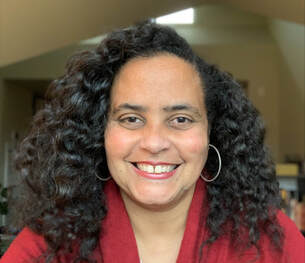
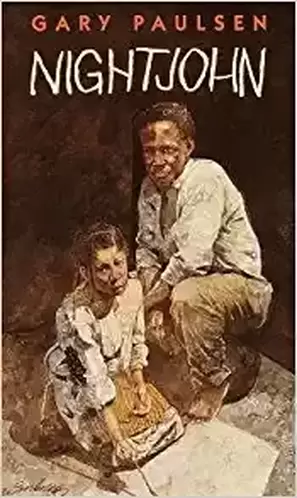
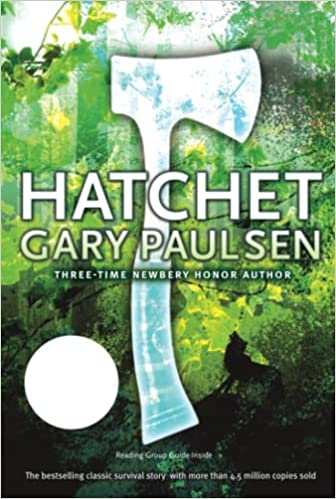
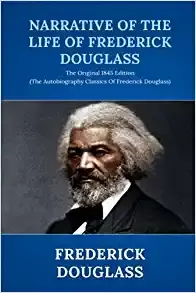
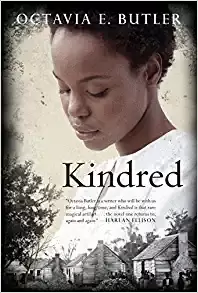
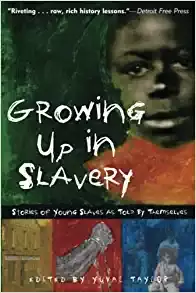
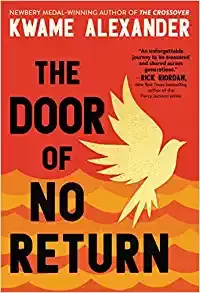
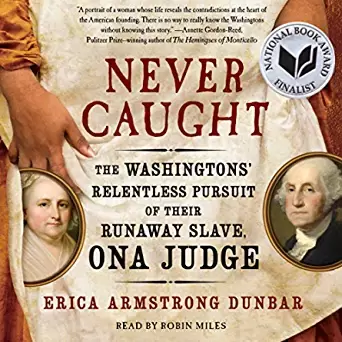
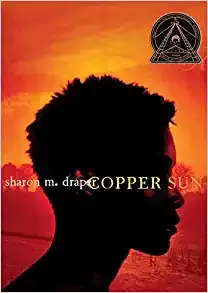

 RSS Feed
RSS Feed